第99章 Chapter 28(4)
From that time Mr. Crawford sat down likewise.
"Poor Fanny!" cried William, coming for a moment to visit her, and working away his partner's fan as if for life, "how soon she is knocked up! Why, the sport is but just begun.
I hope we shall keep it up these two hours. How can you be tired so soon?"
"So soon! my good friend," said Sir Thomas, producing his watch with all necessary caution; "it is three o'clock, and your sister is not used to these sort of hours."
"Well, then, Fanny, you shall not get up to-morrow before I go. Sleep as long as you can, and never mind me."
"Oh! William."
"What! Did she think of being up before you set off?"
"Oh! yes, sir," cried Fanny, rising eagerly from her seat to be nearer her uncle; "I must get up and breakfast with him.
It will be the last time, you know; the last morning."
"You had better not. He is to have breakfasted and be gone by half-past nine. Mr. Crawford, I think you call for him at half-past nine?"
Fanny was too urgent, however, and had too many tears in her eyes for denial; and it ended in a gracious "Well, well!" which was permission.
"Yes, half-past nine," said Crawford to William as the latter was leaving them, "and I shall be punctual, for there will be no kind sister to get up for _me_."
And in a lower tone to Fanny, "I shall have only a desolate house to hurry from. Your brother will find my ideas of time and his own very different to-morrow."
After a short consideration, Sir Thomas asked Crawford to join the early breakfast party in that house instead of eating alone: he should himself be of it; and the readiness with which his invitation was accepted convinced him that the suspicions whence, he must confess to himself, this very ball had in great measure sprung, were well founded. Mr. Crawford was in love with Fanny.
He had a pleasing anticipation of what would be. His niece, meanwhile, did not thank him for what he had just done.
She had hoped to have William all to herself the last morning.
It would have been an unspeakable indulgence. But though her wishes were overthrown, there was no spirit of murmuring within her. On the contrary, she was so totally unused to have her pleasure consulted, or to have anything take place at all in the way she could desire, that she was more disposed to wonder and rejoice in having carried her point so far, than to repine at the counteraction which followed.
Shortly afterward, Sir Thomas was again interfering a little with her inclination, by advising her to go immediately to bed. "Advise" was his word, but it was the advice of absolute power, and she had only to rise, and, with Mr. Crawford's very cordial adieus, pass quietly away; stopping at the entrance-door, like the Lady of Branxholm Hall, "one moment and no more," to view the happy scene, and take a last look at the five or six determined couple who were still hard at work; and then, creeping slowly up the principal staircase, pursued by the ceaseless country-dance, feverish with hopes and fears, soup and negus, sore-footed and fatigued, restless and agitated, yet feeling, in spite of everything, that a ball was indeed delightful.
In thus sending her away, Sir Thomas perhaps might not be thinking merely of her health. It might occur to him that Mr. Crawford had been sitting by her long enough, or he might mean to recommend her as a wife by shewing her persuadableness.